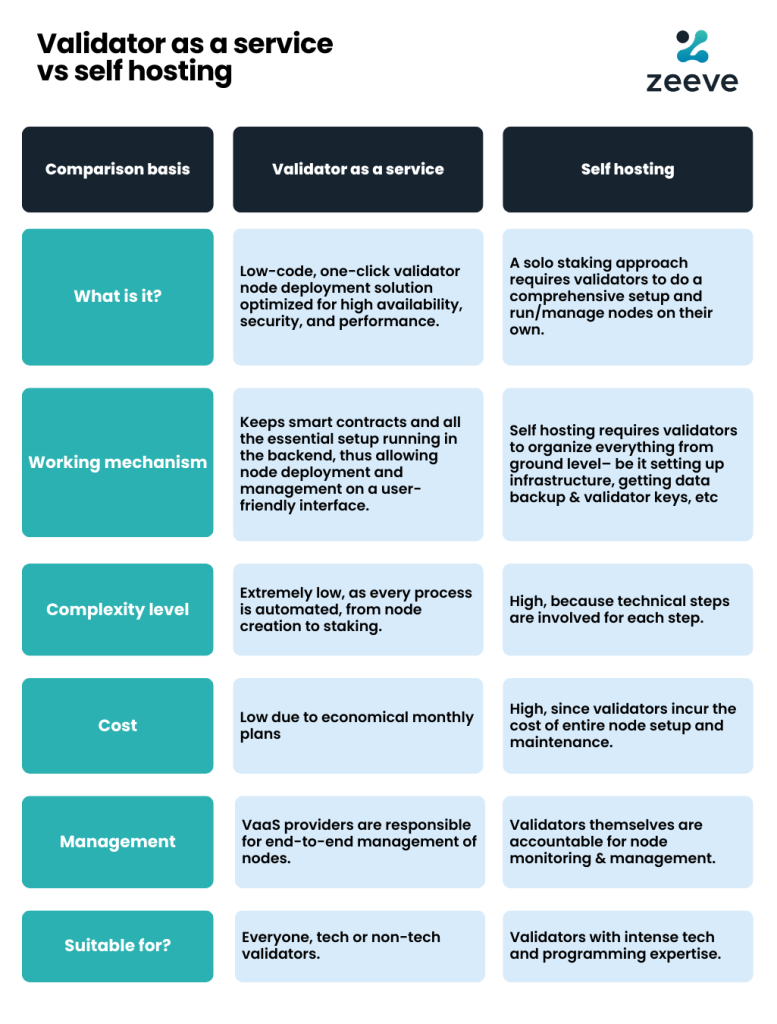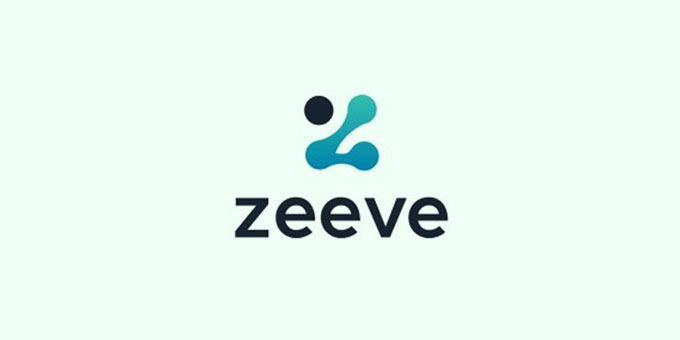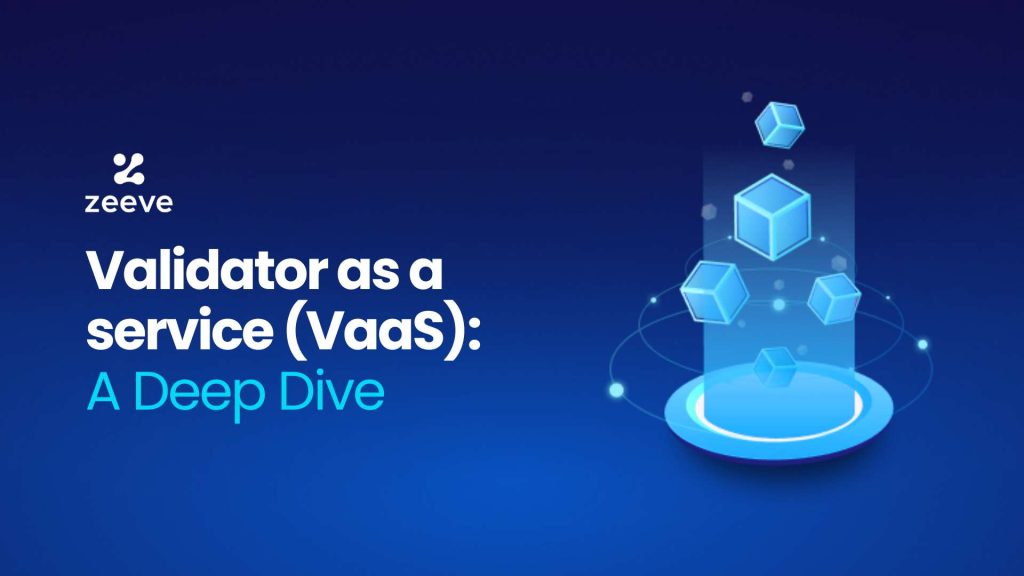Whether you want to maximize your passive income or build a solid career in blockchain, a validator profession is the most lucrative option for both of these choices. However, the process of running and managing blockchain validators or staking nodes can be challenging, especially for those who are starting out with less blockchain familiarity. Validator as a service (VaaS) provides a solution to all these entry barriers facing validators because they run, manage, and scale validator nodes on validators’ behalf, taking a significant load off their shoulders.
This article comprehensively discusses validator as a service (VaaS), allowing potential blockchain validators to understand its significance, core offerings, and everything else that is important. But before that, let’s briefly discuss the role of blockchain validators.
Who are blockchain Validators?
A blockchain validator can be an individual or a group accountable for running nodes (computers) that store data, validate the transactions, and thereby add new blocks into the chain within a proof-of-stake blockchain network. Validators earn rewards on the finalization of every block they propose. However, penalties are also imposed in case they go offline or behave maliciously; for example the situation of slashing. With more proof-of-stake blockchains being introduced rapidly, the profession of blockchain validator is now getting huge traction all across the world.
What is Validator as a service?
Validator as a service or VaaS refers to an ingenious form of staking service that allows to run validators in a highly simplified manner. Their process involves basic node setup, adding essential configurations, and staking amount. All these are done on a low-code interface in a few clicks with no need for hardware or software specs, manual configuration, tools, etc. Validator as a service are basically third-party service providers who offer enterprise-grade infrastructure to host your validator nodes and ensure their smooth scaling, eliminating all sorts of risks that may lead to penalties. With VaaS, your node operates under expert’s surveillance in exchange for a specified monthly fee. Following are the main types of validator as a service that are relevant today:
>Custodial Validator as a service: Custodial validator as service are often big exchanges that manage validators on your behalf and regulate the entire staking process. In exchange, these services are entitled to receive the validator rewards before it goes to the person running the node.
>Non-custodial Validator as a service: In non-custodial Validator as a service, the service provider grants full control of nodes to the validator and it charges a specific amount as fee for operating validator nodes on their behalf. Which means, the entire commission and the node’s control remains in the validator’s hand.
How does Validator as a service work?
Below is a simple breakdown of how a standardized Validator as a service works:
- Validator onboarding: Anyone with prior experience as a blockchain validator can sign up for validator as a service platform and complete their onboarding process.
- Node creation: Upon successful onboarding, users can start creating their node by filling in necessary details such as node name, network type, deployment specifications, and more. Note that these details may differ from service to service.
- Validator node configurations: Validator as a Service platform requires users to make configurations related to their validator node, such as, wallet keys, delegation amount, commission percentage, and more.
- Cloud configuration: With a matured VaaS, you have the flexibility to choose desired cloud service from a range of options available, such as AWS, Azure, as well as GCP cloud.
- Node monitoring and management: VaaS providers offer robust validator node monitoring and management services to ensure your node performs as expected while facing no security downsides.
- Scaling & upgrade: If you want to increase your validator nodes, validator as a service platform allows you to do the same without any heavy lifting.
Key advantages of Validator as a service
Validator as a service offers the following key benefits for validators:
Reduced entry barriers:
To run and manage your validator node with validator as a service, you don’t need to go through the technical steps of setting up hardware and software components for the infrastructure. Plus, your familiarity with validator-related tools & technologies are not required. Your skills about staking, delegation, and transaction verification– that’s all you need. Hence, VaaS platforms eliminated all the main entry barriers.
Reliable network security:
Ensuring unprecedented security of the validator node is integral. However, implementing best security practices such as using firewall protection, enabling encryption-based storage, and safeguarding validator keys along with other sensitive data is an intricate task to accomplish. Considering this, VaaS platforms offer end-to-end security of validator nodes without requiring you to do anything.
Lower cost:
As discussed, validator as a service provider provides you a ready-to-deploy node infrastructure without requiring you to setup or maintain hardware or software specs. Hence, the cost of running a validator becomes significantly lower.
Flexibility of running multiple nodes:
Running a validator node is difficult, and its complexities double up when you run validator nodes with more than one network. That’s because each blockchain has its specific set of validator rules, consensus protocols, and staking parameters. Hence, with validator as a service, you can effortlessly run distinct validator nodes simultaneously and continue to monitor & manage them on a robust infrastructure.
Less exposure to risks:
Many validators as a service are designed to support a purely non-custodial form of staking. This enables validators to manage all the sensitive keys for funds staking, delegation, or withdrawal while the VaaS providers take care of the underlying node infrastructure. Hence, you no longer worry about the safety of wallet keys and funds.
Validator as a service vs self hosting- A Comparison

Important parameters to consider when choosing a Validator as a service for your node
While there are an increasing number of validators as a service provider that are eliminating entry barriers for individuals, each of them have distinct offerings. To ensure you make a best decision, keep the below main parameters in mind:
- Seamless node deployment process: The VaaS platform you choose should offer a simple and quick deployment of nodes, eliminating issues like several onboarding steps, delay in granting access, as well as slow synchronization of nodes.
- Uptime guarantee: a reliable validator as a service provider guarantees 100% uptime for your node, ensuring that nodes are always up and running with zero lags.
- Military-grade security: Without dedicated support and monitoring, your node’s security and performance will always be at risk. Hence choose a VaaS provider that offers 24/7 monitoring and abides by sound security strategies for enhanced validators management.
- Non-custodial staking option: Non-custodial scheme is another important factor that allows validators to stake funds directly through their wallet while allowing them to retain full control on assets. This eliminates counterparty risks and streamlines governance participation.
Run high availability validator node easily with Zeeve
As a trusted validator as a service provider, Zeeve simplifies deployment, management, and scaling of all your validator nodes by offering highly optimized, enterprise-grade node infrastructure. The low-code deployment platform at Zeeve is integrated with industry-leading features like high availability, seamless node scaling, battle-tested security, 24/7 resource monitoring, and real–time alerts. Further, you can run validator nodes for all the major blockchain networks, appchains, and rollups on the Zeeve-managed cloud. Run multiple nodes and manage them altogether across a unified dashboard. Additionally, the validators plan at Zeeve is optimized for lower cost, enabling you to pick from affordable monthly plans.
Ready to deploy your validator node? Connect with our blockchain experts to discuss your specific requirements or get more information about Zeeve’s blockchain-related services.























